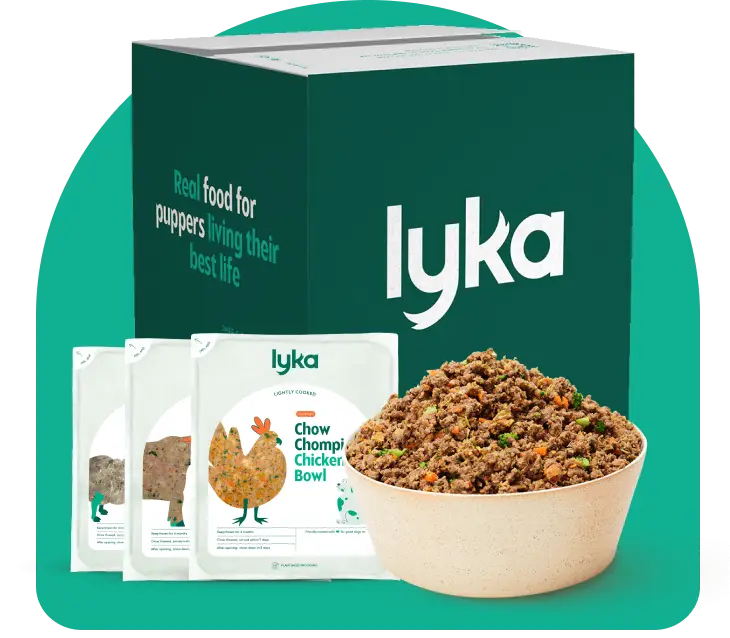The Risks of High Sodium (Salt) Content in Dog Food

By Amy Clarke

Some salt is good for puppers, as it plays a part in maintaining bodily fluids and supporting the functioning of their organs and nervous system. However, there are many risks associated with overconsumption and increased levels of salt in dog food. If your dog has heart disease, heart failure or cardiovascular issues, you should be particularly mindful of this aspect of their diet. Here at Lyka, we carefully balance the salt content in our meals to ensure your pup is getting just the right amount.
Why too much salt is bad for your dog
There are several reasons why too much salt can be bad for dogs.
Overdoing the salt can make your dog extremely thirsty and can even cause sodium poisoning. If a dog is thirsty, they will instinctively find water to alleviate it, however if there is no water available and your dog has ingested an extreme amount of salt in a short period of time, they will access water from their body cells to balance out the blood salt levels. This causes damage to brain cells and can create neurological symptoms like dizziness, headaches and even seizures.
Kidney disease in dogs is often associated with a high salt diet. Symptoms include significant weight loss, vomiting, pale gums, mouth ulcers, blood in the urine, lethargy and seizures.
Too much salt can also lead to increased blood pressure and aggravate the signs of heart disease. Common signs of heart problems in dogs include exercise intolerance, weakness, coughing, difficulty breathing, increased breathing rate and abdominal swelling.
Many dog foods, in particular dry kibble, contain a very high salt content which makes it palatable for your dog but extremely unhealthy. The recommended salt allowance in dry dog food for adult dogs is 0.07% but most dry dog food contains 0.1-0.6% sodium. Lyka’s fresh, lightly cooked meals are the perfect antidote to the risks associated with a dry diet.
We work with leading holistic vets, as well as a veterinary nutritionist, combining the best of natural medicine and scientific research to help optimise your pup’s health for a longer, happier life.
Salt and dogs with heart disease
Congestive heart failure is associated with the retention of sodium, chloride and water. Monitoring the salt content of your dog’s food is a critical part of managing this disease. Dogs with this condition should be given a diet that restricts salt intake to a range of 0.08% – 0.25%. Whilst a lower sodium content in your dog’s food will not prevent heart disease, you should most definitely restrict their salt intake if they show any signs of heart disease.
Why Lyka is good for dogs with heart disease
Whilst a restricted sodium diet is advised for dogs with heart problems, Lyka co-founder and Integrative Vet, Dr. Matthew, advises that all dogs will be healthier on a low salt diet. At Lyka we have formulated our meals in line with the AAFCO requirements for sodium (0.3%) and chloride (0.45%). Along with a delicious array of fresh ingredients, a small amount of Celtic Sea Salt is added to our recipes to meet these requirements, whilst also keeping the sodium content low. Our complete and balanced whole food meals are also rich in omega 3s and antioxidants, which provide extra heart health benefits. Lyka’s meals are low glycaemic, which helps to reduce inflammation that can affect circulatory health. If your pup has severe heart disease, we recommend you consult a cardiologist to determine specific dietary requirements, which may include an ultra-low salt intake.







